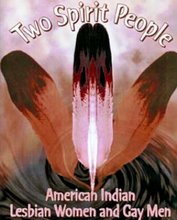In These Times
California Rules!
A Defeat for Right-Wing Activism On and Off the Bench
By Hans Johnson
Refusing to be boxed in by election-year timidity or political threats from the religious right, a majority of the California Supreme Court ruled May 15 that same-sex couples have an equal right to civil marriage in the state. The judgment stands on a sturdy foundation of precedents involving equal protection of the law. Its reasoning and force rebut a far-right charge that has cowed other courts despite being perfectly backward.
In a ruling that the state will not appeal, California’s highest court ordered officials to begin granting marriage licenses to same-sex couples June 15. The clarity of the ruling is a reminder that people outside the ranks of a social movement can sometimes best articulate its progress.
“In contrast to earlier times,” wrote Chief Justice Ronald George, “our state now recognizes that an individual’s capacity to establish a loving and long-term committed relationship with another person and responsibly to care for and raise children does not depend upon the individual’s sexual orientation.”
Sixty years ago, against a steep and contrary bent of public opinion, the same court upheld the right of a Mexican American woman, Andrea Perez, to marry her African-American sweetheart, Sylvester Davis, in Los Angeles. It took two decades for the U.S. Supreme Court to finally follow California’s lead and nix all such bans on interracial marriages.
In the current marriage case, Carlos Moreno, the court’s sole Latino justice, and two others joined the ruling by George, an appointee of former Republican governor Pete Wilson. George became the court’s chief justice the very month (May 1996) that fellow Californian Anthony Kennedy, a Reagan appointee to the U.S. Supreme Court, confounded religious conservatives by striking down an antigay amendment to the Colorado constitution. The measure aimed to obliterate and forever outlaw any protection in any area of life against antigay bias, no matter how severe. Kennedy countered with simple declarative grace that even a majority of voters cannot make gay people “strangers to the law.”
Seven years later, in 2003, Kennedy infuriated the far right again with his ruling against a Texas sodomy statute so prone to abuse that police could wield it to barge into the homes and bedrooms and arrest unsuspecting adults. Today, at its fifth anniversary, the Lawrence standard nullifying all state sodomy laws and extending privacy continues to gain traction in politics and case law in part because of its author’s conservative credentials.
Even the farthest right-wing fringe refrains from demonizing Kennedy due to his status as a swing vote on the Supreme Court. Instead, like prison wardens mocked by defiance of a noncompliant inmate, they direct their rage at justice David Souter, the moderate appointee of Bush 41, and the aged but unflagging jurist John Paul Stevens, a Ford appointee whose demise some on the right actually pray for.
Read more:
The Huffington Post
Bowing to Fear, candidates ignore historic nature of CA decision
Lane Hudson
On Thursday, the California Supreme Court issued a historic ruling that overturned a law denying gays and lesbians equal access to civil marriage. For millions of people like me, it was a moving moment - a moment where we were recognized as being equal in every way in the eyes of the law. A moment that we aspire to see become reality in every corner of America.
Hillary Clinton had this to say about this incredibly important ruling:
"Hillary Clinton believes that gay and lesbian couples in committed relationships should have the same rights and responsibilities as all Americans and believes that civil unions are the best way to achieve this goal. As President, Hillary Clinton will work to ensure that same sex couples have access to these rights and responsibilities at the federal level. She has said and continues to believe that the issue of marriage should be left to the states."
Barack Obama had this to say:
"Barack Obama has always believed that same-sex couples should enjoy equal rights under the law, and he will continue to fight for civil unions as President. He respects the decision of the California Supreme Court, and continues to believe that states should make their own decisions when it comes to the issue of marriage."
Seventy-five words and fifty-four words, respectively, about a 172 page ruling that time will surely find to be the definitive ruling on marriage equality. This ruling will be cited in every marriage case that will be argued in the future. The thoughtful, well-written decision provides the pathway to ending one of the last vestiges of civil discrimination in America. Yet, our presidential candidates couldn't even muster the effort to acknowledge its importance. Disappointing would be a mild word to describe my feelings about them on this issue.
In 1948, California became the first State in America to overturn a ban on interracial marriage. In its decision on Tuesday, the California Supreme Court cited its own words from that 1948 decision. This New York Times piece, titled 'Same-sex marriage, racial justice find common ground' shows the parallels drawn between the two issues by the Court itself:
Not long into the oral argument before the California Supreme Court in March over whether gay and lesbian couples have a constitutional right to marry, Chief Justice Ronald M. George showed his hand.
Three times he quoted from the court's 1948 decision in Perez v. Sharp that struck down a state ban on interracial marriage, a high point in the history of a prestigious and influential court.
"The essence of the right to marry is freedom to join in marriage with the person of one's choice," Chief Justice George said, quoting Perez.
Without doubt, this is the next step in America's journey to live up to the founding principle that all men are created equal. After the Perez decision in 1948, it took the U.S. Supreme Court until 1967 to overturn the remaining unconstitutional laws banning interracial marriage. Even then, public support for interracial marriage was incredibly low.
Today, America is closely divided on the issue. But we know where this is headed. It is in keeping with the tradition and history of America. After all, our nation has a history of making people equal.
Read more:
Subscribe to:
Post Comments (Atom)
















No comments:
Post a Comment